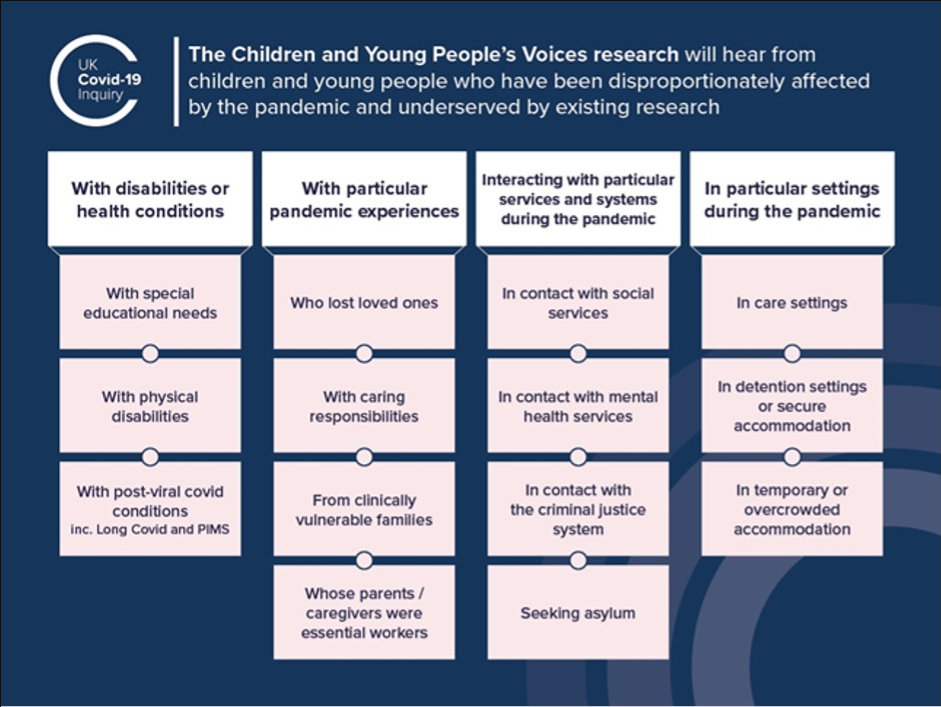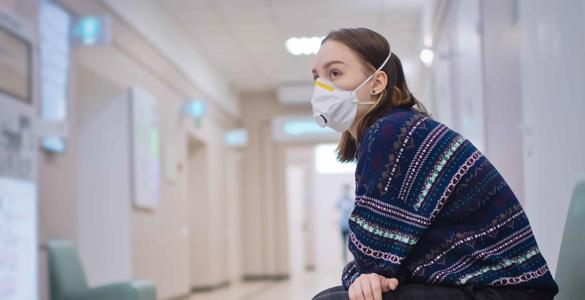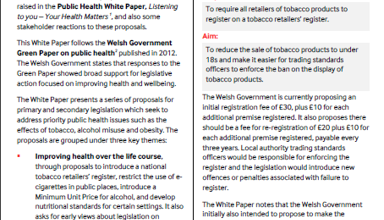The first report from the UK Covid-19 Inquiry on pandemic preparedness will be published at 12pm today. The report promises to shed light on the pre-pandemic period and whether the risk of a coronavirus pandemic was accurately identified and adequately planned for.
It comes as cases of Covid-19 in Wales are currently on the rise, in what is being referred to as the “summer wave”, driven by waning immunity and a group of Covid mutations known as FLiRT.
Living with Covid-19 is the new normal
According to the UK Health Security Agency (UKHSA), the FLiRT variant was responsible for 40% of all Covid-19 cases in the UK in April 2024. The UKHSA has noted a small increase in the number of people being admitted to hospital with the virus.
Despite this, the world is learning to live with Covid-19, much like how we manage seasonal flu and other respiratory viruses. Covid-19, which once brought the world to a standstill, is now a part of our daily lives.
Mark Woolhouse, a Professor of infectious disease epidemiology, suggests that Covid-19 will not pose a significant public health problem in future as “healthy young people build up a natural immunity”, making them much less vulnerable when they’re “elderly and frail”. He’s said “to all intents and purposes Covid-19 will become just another common cold” but has warned “we’re not there yet”.
Adapting to changes
It's crucial to remember that there remains a vulnerable group, including those with underlying health conditions and elderly individuals, for whom the virus still poses a significant risk.
However, the rules and restrictions have changed. The routine provision of free lateral flow tests and the use of PCR tests by the general public have ended (though PCR tests are still used in high risk settings). There is no legal requirement to self-isolate nor to wear masks. However, people are still advised to avoid contact with vulnerable people and to stay at home if they test positive.
The importance of the UK Covid inquiry
While Covid-19 may no longer pose the threat it once did, the consequences of the pandemic endure. The pandemic has profoundly impacted those who have lost family members, individuals dealing with long-term health effects or mental health challenges due to the virus, and young people whose education or training was disrupted.
The UK Inquiry aims to provide a detailed understanding of the decisions taken during the pandemic, providing the opportunity to hold those in power accountable.
By January 2024, the UK Inquiry had collected a huge amount of information:

The findings of the Inquiry could lead to significant policy changes, improving the UK’s preparedness and response to future pandemics.
For those who have lost loved ones to Covid-19, the inquiry may offer a chance for some closure.
Looking back at Module 1
Today’s report focuses on Resilience and preparedness, considering the whole resourcing, risk management and pandemic readiness. The report will likely highlight areas where the response could have been better, offering valuable lessons for future public health crises.
Public hearings for module 1 concluded on 19 July 2023. The Inquiry heard evidence from 69 witnesses from across all four nations of the UK, including politicians, scientists, civil servants, academic experts and bereaved individuals.
Lines of questioning covered topics such as:
- national security and risk preparedness, including pandemic modelling exercises Alice and Cygnus;
- pre-pandemic health inequalities;
- financing for public health services;
- resilience planning in relation to social care services and care homes;
- the impact of preparing for a no-deal EU exist on disaster planning, in particular preparedness for any potential pandemic;
- local health services and resilience forums and their relationship with national administrations; and
- the experiences of bereaved individuals who lost loved ones during the pandemic.
Further details are provided in the Monitoring reports published by the Senedd’s Wales Covid-19 Inquiry Special Purpose Committee.
Baroness Hallet, the Inquiry Chair, expects all accepted recommendations to be implemented promptly, with organisations responding within six months of publication.
The Inquiry team has also said it has already started drafting the second report on core decision making and political governance, which will include findings and recommendations from each of the Module 2 investigations relating to Scotland, Wales and Northern Ireland as well as the UK-wide investigation.
Looking ahead to future modules
The UK Covid-19 Inquiry is split into different investigations – or ‘Modules’, examining different aspects of the UK’s response to the pandemic. Hearings of the other active modules that have already began include:
- Impact of Covid-19 pandemic on healthcare systems in the four nations of the UK;
- Vaccines, therapeutics and anti-viral treatment across the UK;
- Pandemic procurement across the UK;
- The Care Sector across the UK; and
- Approach to testing, tracing and isolation.
The following two modules have recently opened:
Later in the autumn, the Inquiry is expected to launch an investigation into the pandemic’s impact on mental health and wellbeing.
The Chair aims to finish public hearings in 2026.
Every Story Matters
The Every Story Matters events programme is focused on listening to people’s experiences of the pandemic in their local communities. A Bereaved Forum also exists to provide the Inquiry with advice on Every Story Matters and its commemoration work.
Every story shared with the Inquiry will be analysed, and will be used to produce themed reports. These will be shared alongside the module reports, from Module 3 onwards. A final report will be published at the end of the Inquiry.
A bespoke research project has been commissioned to hear directly from children and young people most impacted by the pandemic.

As the UK Covid-19 Inquiry publishes its first report today, it’s an opportunity for reflection, accountability and change. The lessons learned from this inquiry will help shape the future response to pandemics.
Article by Sarah Hatherley, Senedd Research, Welsh Parliament






